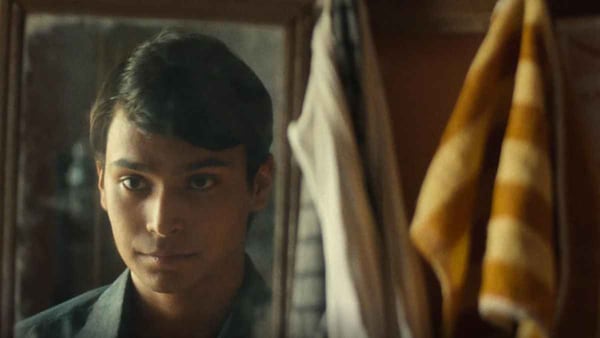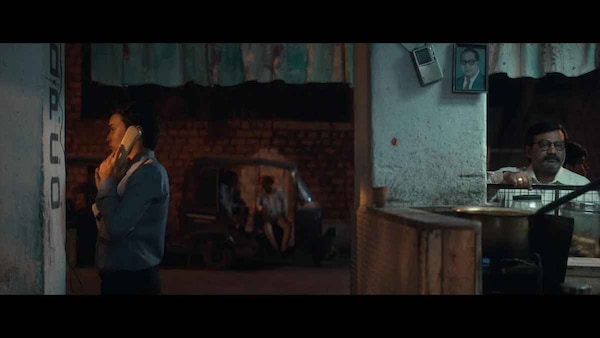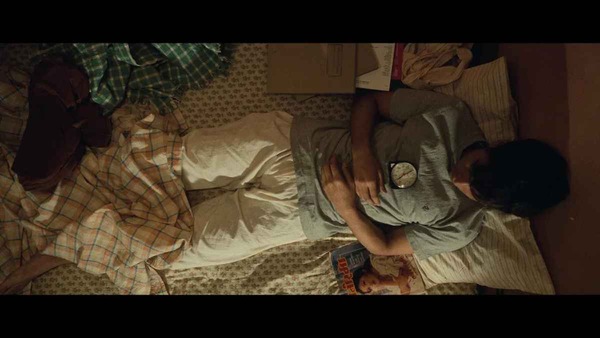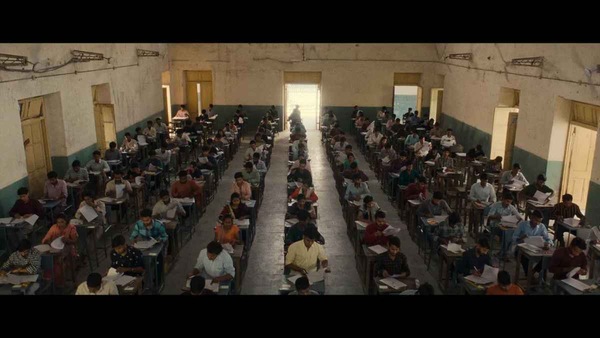The indefatigable charm of All India Rank’s Bodhisattva Sharma
In Varun Grover’s debut feature that opened the Dharamshala Film Festival, Bodhisattva Sharma infuses the endearing with shimmering honesty

Last Updated: 10.01 AM, Nov 13, 2023
The young actor, Bodhisattva Sharma is just twenty, pursuing a bachelor’s degree in English literature. However, as the lead of Varun Grover’s sparkling debut feature, All India Rank, which was the opening film at the ongoing Dharamshala International Film Festival (DIFF), the actor manages to tap a deeply vivid emotional intelligence and transparency.
Sharma reframes the film’s excellent and joyous mix of archetype and freshness through evoking an extraordinary world-discovering sense of personhood. His character, the 17-year-old Vivek, is shipped off from Lucknow all the way to Kota to fulfil his father’s aspirations and elevate the family beyond the drawn-out middle-class anxieties of late 90s India. Vivek is shy and initially guarded in making new relationships. The film encompasses his journey through uncertainties about himself and how he wishes to steer his life, one burdened by an order for control and discipline.

Along the sidelines of the film festival, Sharma tells OTTplay in an interview how he was intimidated when he first read the script. “I’m not at all like him (his character Vivek). I am more questioning. He is a watcher rather than a doer. He is not a traditionally active character, which would obviously be more dramatically compelling. That he could just come off as entirely passive did make me worry.” He talked to his friends and his brother, those whom he felt shared some of Vivek’s attributes.
There’s an untouched innocence and guilelessness about Vivek, which Sharma confesses he had to tap forcefully. Sharma’s beautifully restrained and flat-out disarming performance makes you want to reach out and protect the fragility of Vivek from being scathed by the world even as you know he must forge his explorations on his own dint and by himself.
Sharma began his preparation for the role by purposefully not starting right away with the character’s behaviour, instead he began reminiscing elements that he’d discovered at that age. “I watched a lot of old Hindi films; Varun sir made me check out a lot of old Limca ads. Then there were tons of movie recommendations, ranging from The Breakfast Club to The 400 Blows. I decided Vivek’s favourite film to be Masoom. “ The choice makes perfect sense as the luminous purity of Masoom shines right through All India Rank.

The actor believes in and embraces the rigour of an intensive preparation in its full swing. “I’d ask Varun sir to walk from point A to B twenty or more times just to get a grip on his mannerisms. He also has a particular way of smiling when he gets too emotionally vulnerable.” Sharma added that since the film is semi-autobiographical he felt double the urge to commit to his rigorous preparation.
Besides Grover’s specific attention to getting the language and dialect spot on, there were also crash courses Sharma did on eleventh and twelfth-grade maths and science courses, coached by Vaibhav Varun. A string of workshops were held by Sridhar Dubey, where the cast would not just do character-oriented seeking but also talk a lot about all kinds of things, play games and even sing.
Sharma revealed that he’d ask Samta Sudiksha, who plays Sarika, the clear-headed girl Vivek likes, to rehearse and act out some of the scenes that helped him connect with his femininity. “I even created a ridiculously tragic backstory for Vivek, which makes no sense to me now but in a way helped me understand better his apprehensiveness toward new relationships”. Quoting the iconic 1952 song, Ja Ja Ja Bewafa, he talks about the particular adolescent feeling of having the entire world pitted against you. Sharma also relied on songs to key him into arriving at the emotional textures of several moments in Vivek’s journey. The immensely articulate actor went back to Chopin’s Nocturne in C sharp minor and Ballade no 1 in G minor. He also mentions Rachmaninoff’s piano concerto no 2, which he drew on for capturing the feeling of love.

What are his favourite songs from the film?
“Noodle Sa Dil, for sure! It’s instantly catchy. Originally, there was supposed to be some other song but Varun sir didn’t get it, so he went ahead and wrote this”.
Throughout the process, Grover was receptive to change. He didn’t necessarily treat his script as a bible and encouraged suggestions. Sharma is also agile and adept at improvisations. “As an actor, I do believe in getting the canvas of my character ready, sketching it out. One of my guiding principles is fear. I like feeling challenged. The idea is to know the character so that even if dialogues change, you’d know what the character would do." He pinpoints the scene after Vivek and his friends return from the dam to their hostel and engage in drunken banter. On paper, the scene was drastically different, Grover making vast changes on set, but both Sharma and his co-actors quickly rose to the task, already having built an easy-going dynamic among themselves that has grown since they first met during the selection auditions.
His formative years of being a theatre artiste also bolstered this. Originally from Assam, Sharma started acting while he was in the fourth grade and took part in a proper play the very next year itself with the Little Theatre group in Delhi. The production was met with adulation. “I felt like the king of the world”, he laughs. Being what he calls one of the COVID-19 generation actors, he landed a role in Paatal Lok. “All this while, I had thought of myself as crazy good but sharing the frame with Jaideep Ahlawat was instantly humbling”. The workshops he did for the show enabled him to ease from theatre to film acting. Interestingly, Shashi Bhushan, who plays his father in All India Rank, had conducted his workshops for Paatal Lok. It was easy for Sharma to imagine him as a father figure. He adds how Bhushan and Geeta Agarwal, delightful as Vivek’s parents in the film, already shared a great dynamic and he felt like he was almost crashing into them.
All India Rank marked the first Indian film to be the closing film at the Rotterdam Film Festival earlier this year. It was also Sharma’s first international festival. “It was surreal, to say the least. I will never stop sharing the story of the two Brazilian women who came up to Varun sir and bowed to him. It just reaffirmed how stories can transcend cultures in the most incredible ways.”
The film played at DIFF, a few days after its screening at the Mumbai Film Festival. “DIFF has a lot of character. Like Rotterdam, people have travelled from all over the country to attend the festival for the sheer love of movies."
He admits he was pretty nervous before, during and after the screening at DIFF. “I was practically shaking when we were called in front of the stage when the film was over. "
But the generosity of the rapturous reception made up for all the jitters. The screening was accompanied by frequent rounds of cheering, hooting and occasional whistles by the audience, hooked to every moment.
"There were also these interesting responses that happened, places and scenes which we hadn’t thought of as funny audiences were laughing at." The actor charts a richness of emotions in the smallest of moments, rendering them momentous throughout, grounding the film with sincerity, tenderness and warmth.
“I have explored extremes. I can find something in the middle. I do like hyperbole”, he smiles. It wouldn’t be a stretch to say that in All India Rank, a young actor has arrived with the beauty and wonder of fresh blossoms.

